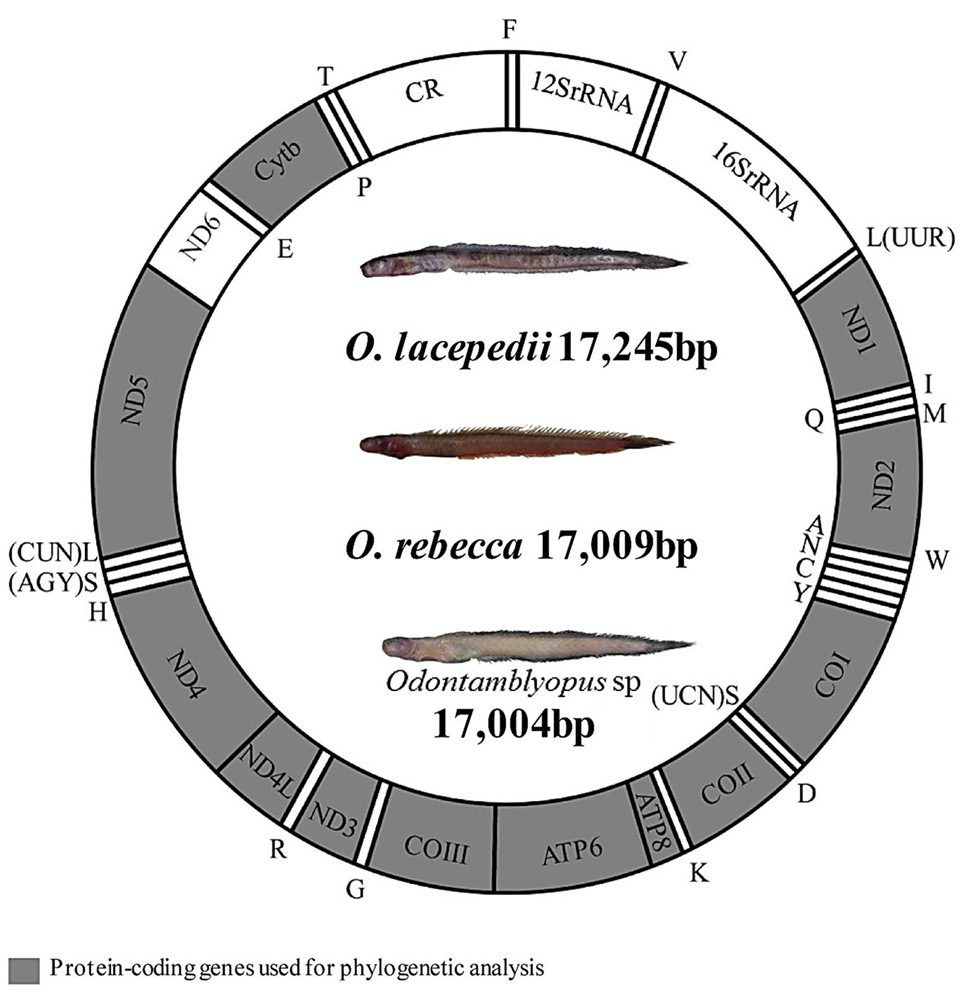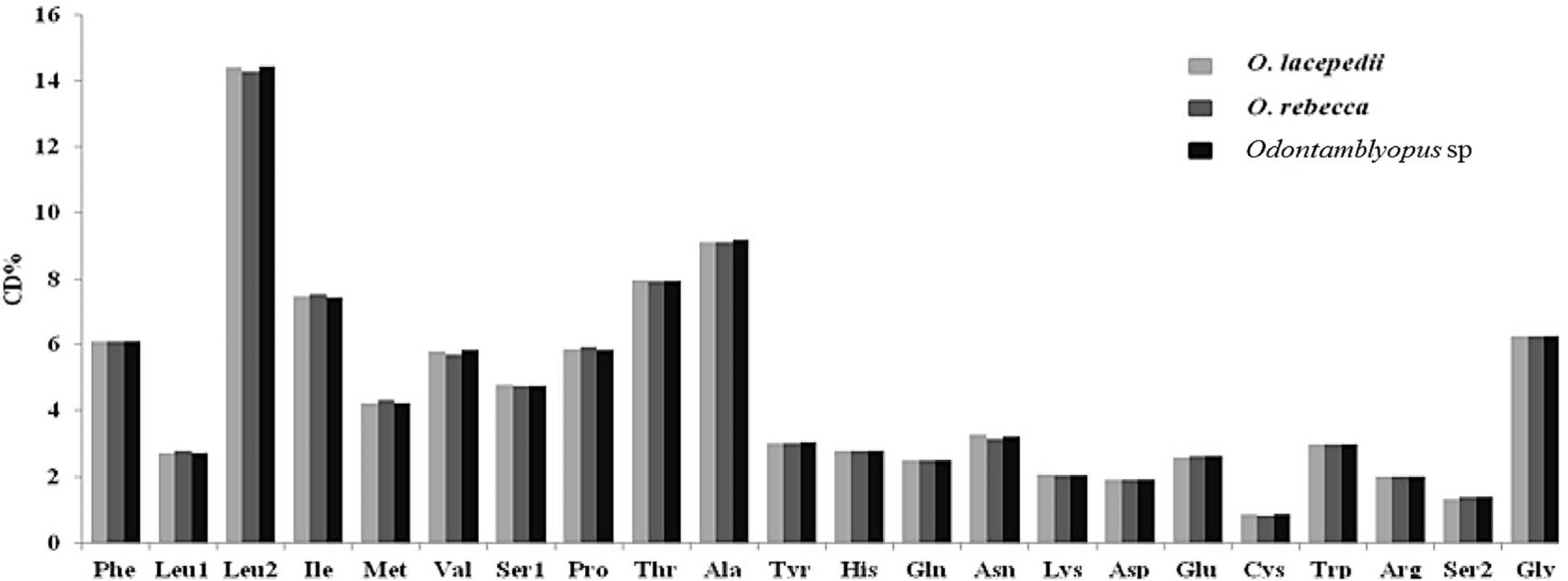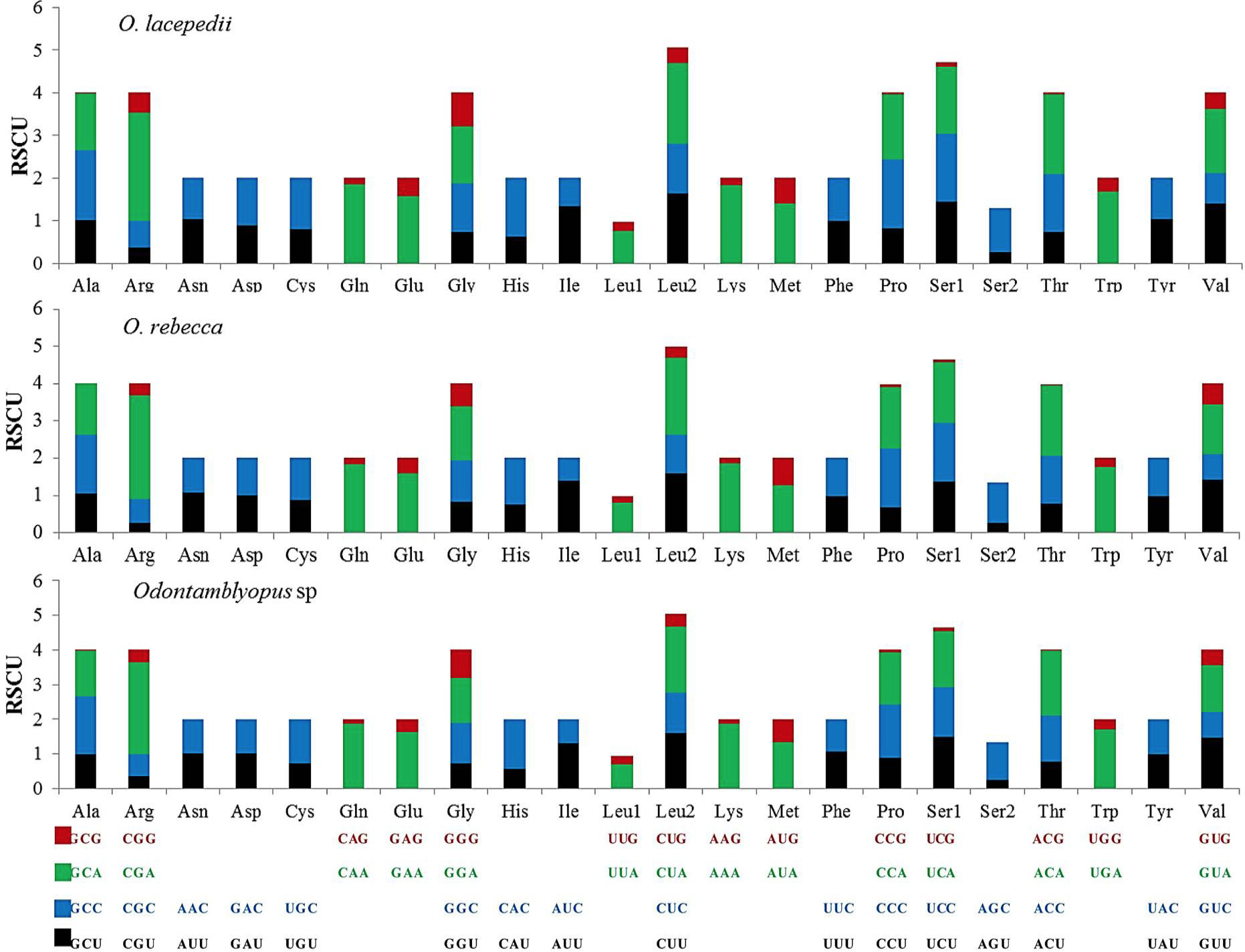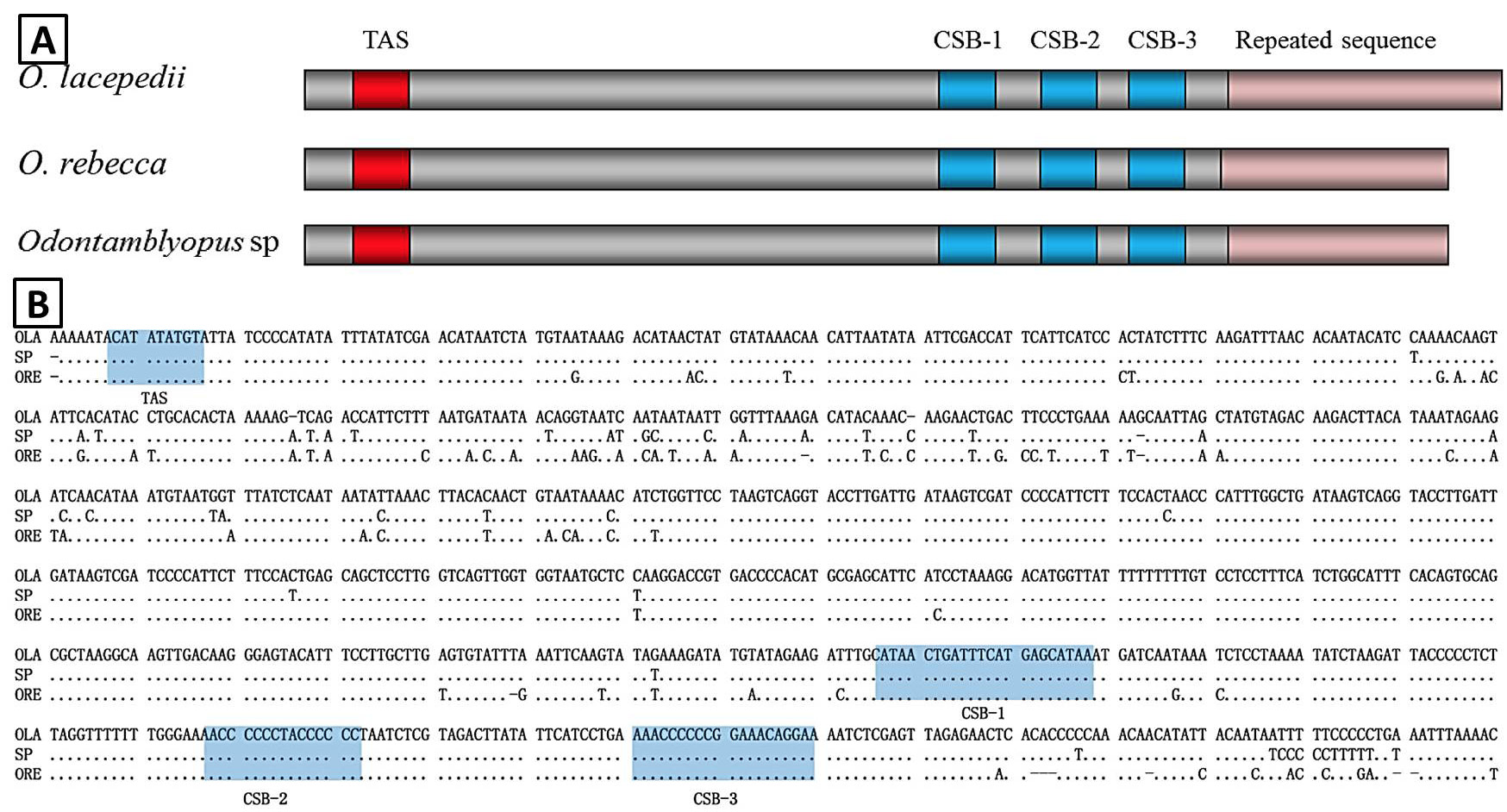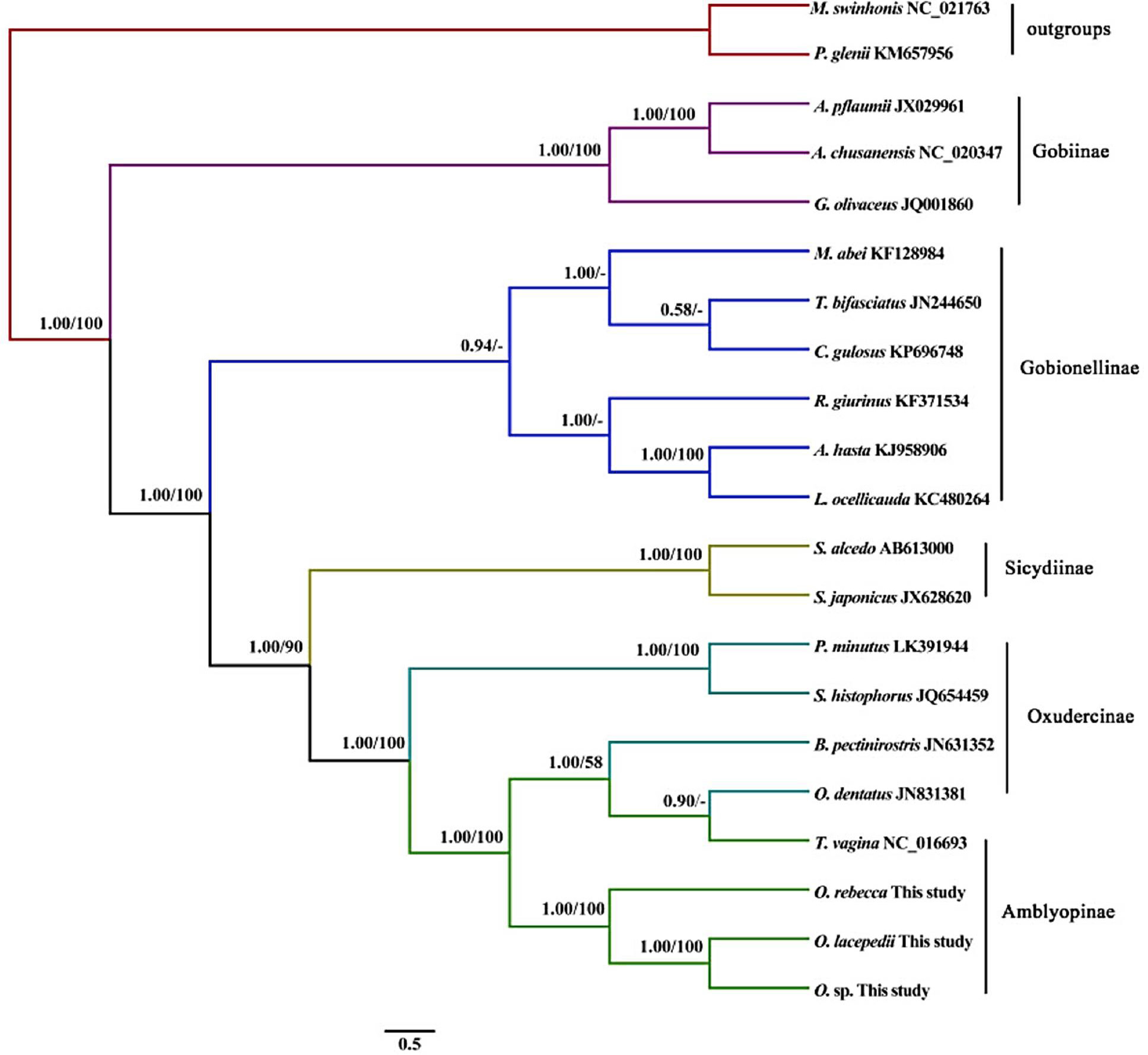Complete Mitochondrial Genome of Three Species (Perciformes, Amblyopinae): Genome Description and Phylogenetic Relationships
Complete Mitochondrial Genome of Three Species (Perciformes, Amblyopinae): Genome Description and Phylogenetic Relationships
Zisha Liu1, Na Song1, Takashi Yanagimoto2, Zhiqiang Han3, Bonian Shui3 and Tianxiang Gao3,*
Gene organization of the mitochondrial genome of O. lacepedii, O. rebecca and Odontamblyopus sp. All protein-coding genes are encoded on the H-strand, with the exception of ND6 which is encoded on the L-strand. The two ribosomal RNA genes are encoded on the H-strand. Transfer RNA genes are designated by single-letter amino acid codes. Genes encoded on the H-strand and L-strand are shown outside and inside the circular gene map, respectively.
Codon distribution in 13 protein-coding genes of O. lacepedii, O. rebecca and Odontamblyopus sp. with 3805, 3804 and 3805 codons, respectively for each mitochondrial sequence analysis, excluding all stop codons. CD%, the percentage of codons.
Frequencies of codons ended with the same nucleotide on total and each strand (H, L) of O. lacepedii, O. rebecca and Odontamblyopus sp. mitogenomes. Values on the Y-axis indicate the sum of RSCU values of codons ended with the same nucleotide across all codon families (X-axis). RSCU, relative synonymous codon usage; OLA, O. lacepedii; ORE, O. rebecca; OSP, Odontamblyopus sp.
RSCU in 13 protein-coding genes of O. lacepedii, O. rebecca and Odontamblyopus sp. Codon families are given on the X-axis.
Comparison of the characteristics of mitochondrial control region of three gobies (A). TAS, termination-associated sequence; CSB-1, 2 and 3, conserved sequence blocks 1, 2 and 3 (B).
Phylogenetic tree of Gobiidae fish based on 12 protein-coding genes excluding ND6 gene. The tree was built based on the TIM3+1+G model (-ln L=119,585.39, A:C:G:T=0.3172, 0.3187, 0.1016, 0.2625, I=0.2830, G=0.4140). The topology generated by Bayesian inference is shown, and is identical to the result of maximum likelihood analysis. Bayesian posterior probabilities and bootstrap support values above 50% replicates are shown adjacent to each internode. M. swinhonis and P. glenii were used as outgroups.







